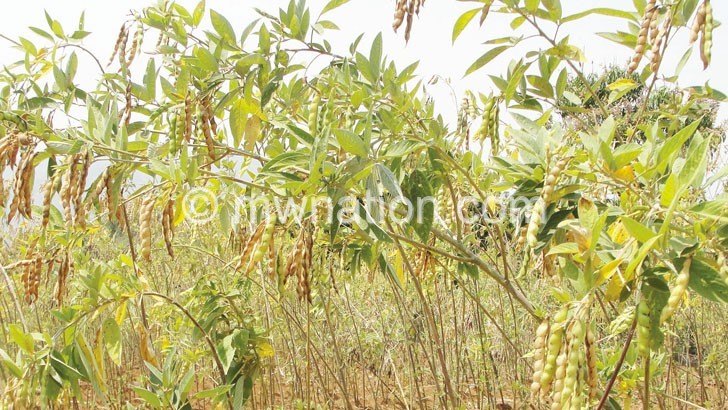Mitc banks hopes on pigeon peas
The Malawi Investment and Trade Centre (Mitc) projects the country’s pigeon peas demand to rise by 100 534 tonnes ahead of the removal of import restrictions in India.
In its Production and Market Prospects for Legumes analysis, Mitc said it expects demand to rise from the previous year’s 404 466 tonnes to 550 000 tonnes.

Said Mitc in the analysis: “It is projected that this growing season of 2020/21, the demand for Pigeon peas will be around 550 000 tonnes which is very high since India, Malawi’s main buyer, is about to lift the three-year ban which was imposed on this crop.”
In the past three seasons, India has allowed imports of pigeon peas in the region of 200 metric tonnes (MT) per year upon signing of a trade agreement between India and the exporting countries. Malawi did not secure a quota on this import cap in the past two seasons.
Malawi remains the third largest producer of Pigeon peas in the world exporting an average of 250 000 MT annually.
Since India introduced the trade policy on import of tur dal August 2017, Malawi has lost 64 percent in export earnings between 2016 and 2018. Acccording to the High Commission of India, Malawi exports to India have fallen drastically from $39.32 million (about K29 billion) in 2016/17 to $9.05 million (about K7 billion) in 2017/18, followed by a resurgence in the imports of pigeon peas to $14.32 million (about K10 billion) in the 2018/19 financial year.
Following the closure of the export market in India, Malawi has been left with little to no market outlets for her pigeon peas. Under pressure and out of desperation, smallholder farmers disposed of their commodity to as low as K50 per kilogramme [kg].
Citing the closure of the international market, some unscrupulous traders bought the crop at as low as between K50 and K70 per kg leaving farmers destitute.
Reacting to the development, agriculture expert Tamani Nkhono-Mvula emphasised that the opening of the Indian market is a boost for Malawian farmers and the government.
Nkhono-Mvula said farmers have not benefited previously from the Indian market as they have been duped by vendors and unscrupulous traders who buy cheaply and export to India at 100 times profits.
He said: “Government should be proactive to talk to the Indian government to allocate Malawi an export quota and Admarc should manage supplies in the quota. In such a way, the economy will benefit”.
National Smallholder Farmers Association of Malawi chief executive officer Betty Chinyamunyamu said it is important that the country should work on quality issues as most rewarding markets have high standard requirements.
In its July position paper titled Pigeon Pea Marketing Trends in Malawi: What Does the Future Hold for Malawian Pigeon Peas Farmers?, Civil Society Agriculture Network observed that unlike in other countries in the Eastern and Southern Africa region, the pigeon pea market in Malawi is disorganised with the market systems characterised by highly fragmented marketing channels based on individual family enterprises.





